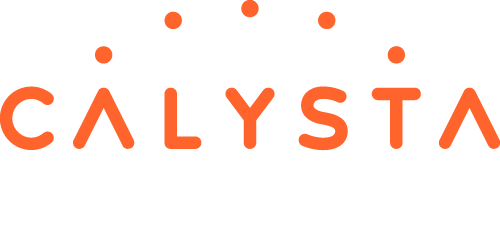
Why work with CALYSTA on your contracts?
At CALYSTA we apply a basic principle to all of the contracts we draft. They should be legally binding, but easily understood by the business. They ensure valid protection, but at the same time become a communication tool aimed at guiding the partiesand facilitating the contract’s implementation.
Our contracts are instruments adapted to the realities of your business. They are drafted in a clear and simple way, using plain language and avoiding where possible complex legal concepts that are not further explained or clarified.
CALYSTA’s services/offer includes drafting and reviewing a broad range of contracts. Contracts directly related to intellectual property (such a assignments and licenses of IP rights) are obviously part of our core business. But we also offer drafting and reviewing services for other types of contracts such as franchise, distribution, supply of products and services and confidentiality agreements.
We are convinced that contracts drafted with our assistance can be an eye opener for your business team and you will be amazed at how efficient they can be in reaching your business objectives.
Our contracting services
-
Joint development agreement
A joint development agreement sets out the terms for two or more parties who are working together to develop an new product, technology or process.
Typically a joint development agreement will address which tasks each of the parties will perform as part of the collaborative effort. It is very important however not to forget to address all Intellectual Property related issues as well. Important IP related questions that should be answered in a joint development agreement could be: How is the Intellectual Property expected to arise from the joint venture defined? Who will own the Intellectual Property created as a result from the collaboration? What will happen to each party’s pre-existing Intellectual Property? Does one party needs to grant a license to the other party in order to develop a certain product or technology? How will the Intellectual Property arising from the joint venture be protected: will it remain a trade secret or should will one of the parties apply for patent, trademark or design protection? Who is responsible for filing and prosecuting such applications and who will pay for the expenses?
-
Distribution agreement / Supply agreement
A distribution agreement is an agreement between an entity supplying certain goods and an entity that distributing or reselling those goods. A supply agreement is an agreement between a supplier (a manufacturer or wholesaler) and a buyer for the supply and purchase of certain goods.
In a distribution or supply agreement it is very important to detail the rights of the distributor, reseller or buyer regarding the use of Intellectual Property, including brand names and trademarks.
-
Service agreement
A service agreement is an agreement between two persons or businesses where one agrees to provide a specified service to the other.
There are various types of service agreements. For instance, General Service Agreement (an agreement between a contractor and a property or a business owner to provide services like gardening and repair works); Consultant Services Agreement (an agreement between a consultant and a client that identifies the terms and conditions related to the type of consulting services that the consultant will provide); Artist Services Agreement (an agreement between a business owner, or client, and an individual to perform bookkeeping or accounting services)
Generally, a service agreement should include the following elements:
- a description of the services to be provided, and their frequency;
- identification of the persons or categories of persons who are to provide the services;
- the schedule or frequency of sessions of supervision or monitoring required, if any;
- fees for services.
-
Material Transfer Agreement (MTA)
A Material transfer agreement (MTA) is a contract that governs the transfer of tangible research materials between two organizations when the recipient intends to use it for his or her own research purposes. The MTA defines the rights of the provider and the rights and obligations of the recipient with respect to the materials and any progeny, derivatives, or modifications.
-
Manufacturing agreement
A Manufacturing Agreement is a contract between two parties for the manufacture and sale of goods. A Manufacturing Agreement sets out clearly the type, quantity and specifications of the goods to be manufactured, as well as the purchase price and payment terms. A Manufacturing Agreement also sets out any minimum purchase obligations, warranties given in respect of the goods and how title and risks in those goods pass.
-
Open-source software licenses
An open-source license is a type of license for computer software and other products that allows the source code, blueprint or design to be used, modified and/or shared under defined terms and conditions. This allows end users and commercial companies to review and modify the source code, blueprint or design for their own customization, curiosity or troubleshooting needs.
-
Trademark co-existence agreement
In the crowded world of commerce it is to be expected that different business sometimes use the same name or sign to market a product or service. A trademark co-existence agreement (TCA) may be useful when two companies use a similar sign or trademark to market a product or service, without necessarily interfering with each other’s business. In this case they can avoid litigation and simply enter into a settlement agreement in which they both recognize each other’s rights and agree on the terms on which they may exist together in the market place.
If you are a trademark owner and you are confronted by a later trademark application that is confusingly similar to yours, there are several actions you can take. One option is to file an opposition. However, when both trademarks are not too similar or when the applicant’s activities are quit remote from yours, it might be worth to discuss the possibility of co-existing on the market place and lay down the rules of such co-existence in a trademark co-existence agreement. This way you can avoid costly opposition proceedings and minimize the risk of future trademark disputes.
Although trademark co-existence agreements are most common, co-existence agreements can also involve tradenames, copyrights and designs.
-
Non-disclosure agreement
In a non-disclosure agreement (NDA), also called confidentiality agreement, parties agree to keep certain information confidential and not to disclose this information with anyone else. Such a non-disclosure agreement allows you to share your intellectual property and other confidential information with others, whose input it may need, without unduly jeopardizing this information.
Entering into a non-disclosure agreement is advisable in any situation in which you need to share confidential information with a third party: for example when you negotiate or enter into a license agreement with a third party or when you cooperate on an R&D project with a third party.
-
Non-compete agreement or clause
A non-compete agreement is a contract that prevents an employee, consultant or independent contractor from working for or becoming a competitor.
Non-compete agreements or non-compete clauses can be a useful tool to protect trade secrets and know-how, as it prevents a (former) employee from taking sensitive information to a competitor, or from using sensitive information to become a competitor.
Non-compete agreements need to be fair and equitable in order to be legally binding. It is thus very important to seek legal advice when you wish to enter into a non-compete agreement. Important questions are: How long after termination of a contract can you prevent a former employee from working for a competitor? In which territory can you prevent a former employee from working for the competitor? Etc..
-
IP clauses in employment agreement
Depending on the activity of the employee, it may be necessary to include an IP clause into his or her employment agreement. When your employee does intellectual work, the question may arise who owns the Intellectual Property the employee creates and whether a compensation is payable to this employee. This will depend on the type of IP your employee creates (copyright, design, patent, software,…) and theIP clause in the employment agreement. To avoid disputes and unforeseen legal issues, be advised to consult an IP specialist when drafting an employment agreement relating to intellectual work.
-
IP rights due diligence in M&A transactions
IP due diligence is essentially an audit to assess the quantity and the quality of intellectual property assets owned by, or licensed to, a company, business or individual. Typically, IP due diligence is carried out by a prospective purchaser in relation to the IP assets of the target company or business.
-
Websites: Privacy Policies, General Terms and Conditions and GDPR data processing agreements
A Privacy Policy is a statement on a website which explains to the website user how the website operator collects, stores and protects the user’s personal data. Any website which gathers any data from its users is required to have a Privacy Policy.
The General Terms and Conditions on your website govern what customers or users must comply with in order to access and use your website. Stating General Terms and Conditions on your website is important, as it is a way to regulate the use of your website, to limit your liability and to make sure you comply with all applicable privacy laws. In addition, you can also protect your Intellectual Property from unauthorized use by adding a specific clause to your General Terms and Conditions that users of your website are not allowed to reproduce your content or trademark without your written consent.
A GDPR Data Processing Agreement is an agreement between a data controller (usually the website owner) and a data processor (a third party, processing personal data on behalf of the data controller) regarding the data collected on the website. In order to comply with the GDPR, a website owner (data collector) needs to enter into a Data Processing Agreement with any parties that act as data processors on their behalf.












